#william kelley
Text
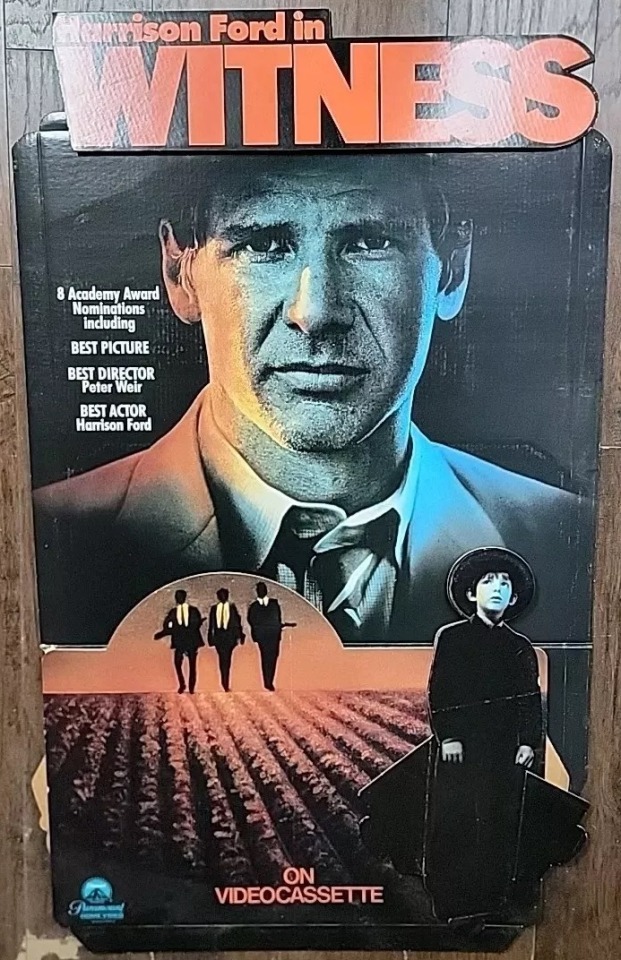
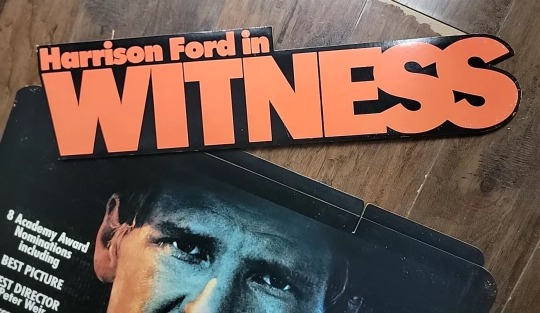
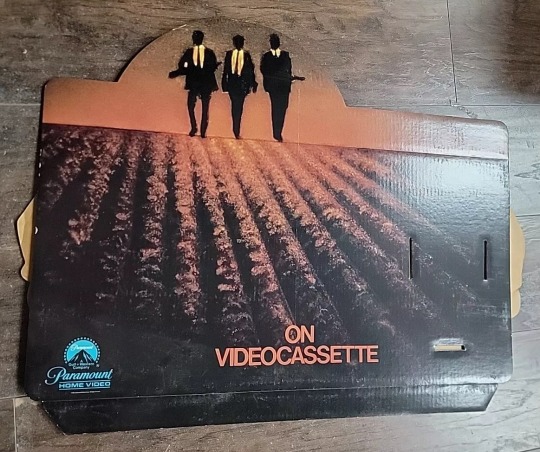
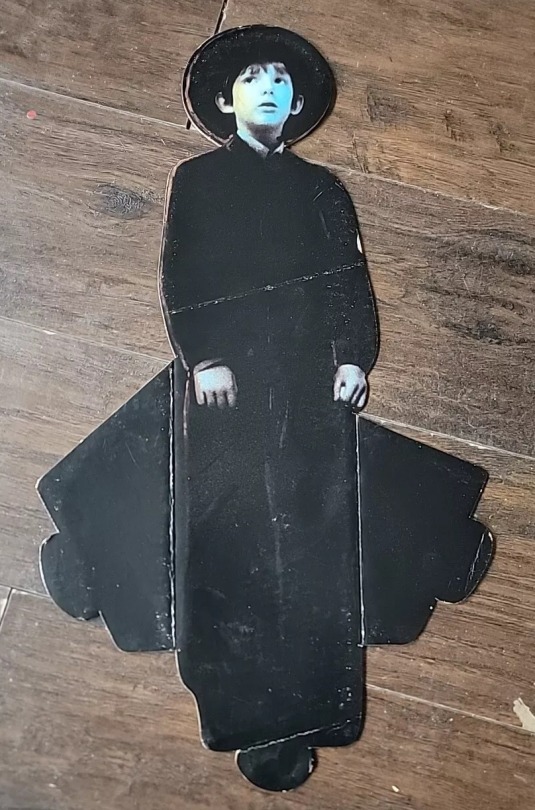
#Witness#Witness 1985#Harrison Ford#Lukas Haas#Peter Weir#William Kelley#Pamela Wallace#Earl W. Wallace#80s
16 notes
·
View notes
Text
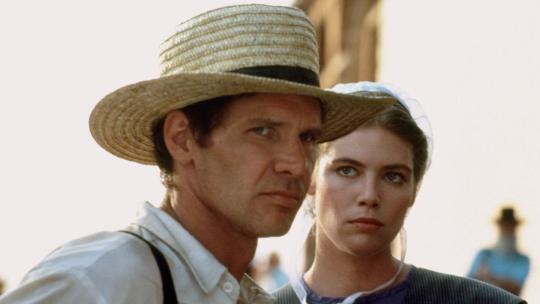
.
- Your sister says you don't have a family.
- No, I don't.
- She thinks that you ought to get married and have children of your own, instead of trying to be a father to hers.
- Yeah.
- Except she thinks you are afraid of the responsibility.
- That's interesting... anything else?
- She thinks you like policing because you think you are right about everything and you're the only one who can do anything, and when you drink a lot of beer you say things like 'none of the other police know a crook from a bag of elbows!'. At least I think that's what she said.
Witness, Peter Weir (1985)
#Peter Weir#Earl W. Wallace#William Kelley#Harrison Ford#Kelly McGillis#Josef Sommer#Lukas Haas#Jan Rubes#Alexander Godunov#Danny Glover#Brent Jennings#Patti LuPone#Angus MacInnes#Viggo Mortensen#John Seale#Maurice Jarre#Thom Noble#1985
9 notes
·
View notes
Text
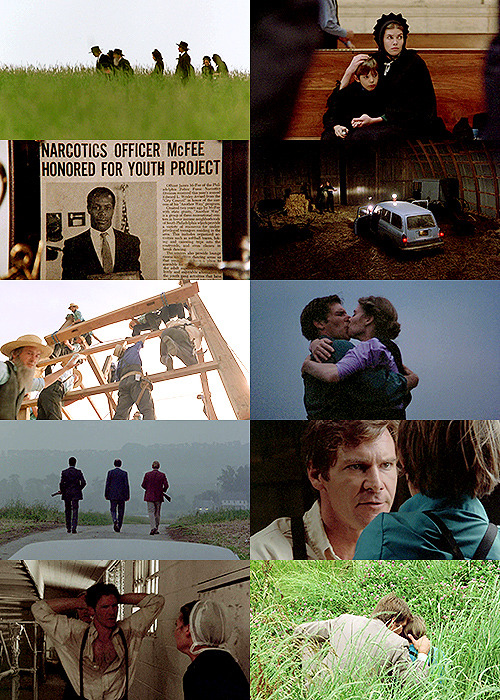
Witness (1985). While protecting an Amish boy - who is the sole witness to a brutal murder - and his mother, a detective is forced to seek refuge within their community when his own life is threatened.
This is one of my mum's favourite movies, and I still remember her finally deciding I was old enough to watch it with her (when I probably wasn't, haha) and feeling every way this movie sings. And man, it holds up. Peter Weir really is THAT director, an uncanny touch with both the feminine and the masculine, with tenderness and violence, with languid lyricism and brute, effective punctuation. It's kind of insane to me that his body of work isn't given the same bated-breath treatment as some of his contemporaries. Anyway, this might just be a perfect romantic thriller, and far and away Harrison Ford's best work. 9/10.
#witness#1985#Oscars 58#Nom: Film#Nom: Director#Nom: Actor#Nom: Original Screenplay#Won: Original Screenplay#Nom: Score#Nom: Art Direction#Nom: Cinematography#Nom: Editing#Won: Editing#peter weir#William Kelley#pamela wallace#Earl W. Wallace#harrison ford#kelly mcgillis#Josef Sommer#lukas haas#danny glover#patti lupone#crime#thriller#romance#mother-son#9/10
6 notes
·
View notes
Text
Top two vote-getters will move on to the next round. See pinned post for all groups!
#best best screenplay tournament#academy awards#oscars#best original screenplay#dead poets society#tom schulman#chariots of fire#colin welland#talk to her#pedro almodóvar#witness#william kelley#earl w. wallace#pamela wallace#the hurt locker#mark boal#brackets#bracket tournament#poll#polls
3 notes
·
View notes
Link
I didn’t know who William Kelley was [...] but, like millions of Americans, I knew a term he is credited with first committing to print. “If You’re Woke, You Dig It” read the headline of a 1962 Op-Ed that Kelley published in the New York Times, in which he pointed out that much of what passed for “beatnik” slang (“dig,” “chick,” “cool”) originated with African-Americans.
A fiction writer and occasional essayist, Kelley was, himself, notably woke. A half century before the poet Claudia Rankine used her MacArthur “genius” grant to establish an institute partly dedicated to the study of whiteness, Kelley turned his considerable intellect and imagination to the question of what it is like to be white in this country, and what it is like, for all Americans, to live under the conditions of white supremacy—not just the dramatic cross-burning, neo-Nazi manifestations of it common to his time and our own but also the everyday forms endemic to our national culture.
Kelley first addressed these issues at length in his début novel, “A Different Drummer.” Published three weeks after that Times Op-Ed, when he was twenty-four, it promptly earned him comparisons to an impressive range of literary greats, from William Faulkner to Isaac Bashevis Singer to James Baldwin. It also got him talked about, together with the likes of Alvin Ailey and James Earl Jones, as among the most talented African-American artists of his generation.
When I read “A Different Drummer,” I understood why. Geographically, the novel is set in a small town called Sutton, outside the city of New Marsails, in an imaginary Southern state wedged between Mississippi and Alabama. Temporally, it is set in June, 1957, when a young African-American farmer named Tucker Caliban salts his fields, slaughters his horse and cow, burns down his house, and departs the state—whereupon its entire African-American population follows.
It’s a brilliant setup. Our culture has produced countless fantasies about what would have happened if the Civil War had ended differently—chiefly, if the Confederacy had won and slavery had endured. (See, e.g., “The Guns of the South,” “If the South Had Won the Civil War,” and “Underground Airlines.”) But we have a paucity of art that chooses to imagine a different outcome for the civil-rights movement, or alternate universes where African-Americans, from any era, wield not less power but more.
Appropriately, that seizure of power—the sudden refusal of African-Americans to continue living under conditions of subordination—flummoxes the white citizens of Sutton. [...] Some wonder whether wages will be better or worse with a third of the population gone. Others, professing not to care about Caliban and his followers, echo the governor’s statement: “We never needed them, never wanted them, and we’ll get along fine without them.” Still others feel betrayed, in ways they can’t articulate, by the violation of a social compact whose terms they’d never previously bothered to study too closely.
Although the plot of “A Different Drummer” depends on the autonomous actions of African-Americans, the story is told exclusively through the eyes of these white townspeople. This, too, is a smart idea—a kind of fictional affirmation of the historian Lerone Bennett, Jr.,’s claim that “there is no Negro problem in America. The problem of race in America . . . is a white problem.” Moreover, it is wonderfully executed. At twenty-four, Kelley was already a strikingly confident writer, with a sense of humor reminiscent of Flannery O’Connor in stories like “Revelation”: caustic, original, efficacious. He was also a keen observer, and although his story has the emotional proportions of a myth, his sentences reliably feel like real life. Tucker Caliban’s doomed cow is “the color of freshly cut lumber”; to the men watching from outside, the fire he set first appeared climbing a pair of curtains in the center of his home, then “moved on slowly to the other windows like someone inspecting the house to buy it.”
“A Different Drummer” ends in pessimism, less about the fate of black Americans than about the moral potential of white ones. Yet, thanks to it, Kelley’s career began in tremendous optimism. His was the rare first novel that makes future ones seem both inevitable and exciting—and, indeed, he went on to publish four more books in under a decade. But I wasn’t alone in being unfamiliar with them. After his early and fiery start, Kelley largely faded into obscurity—not just before our era but in his own prime. Obscurity, of course, is a common enough fate for authors. But what’s curious about Kelley is that he is seldom read today not just because of the weaknesses in his books but also because of their peculiar, discomfitting strengths.
#this blockquote is just a tiny fraction of the full profile‚ which i thought was pretty interesting!#i'd never heard of this guy but this makes his work sound awfully compelling#william kelley#bookblogging
11 notes
·
View notes
Text
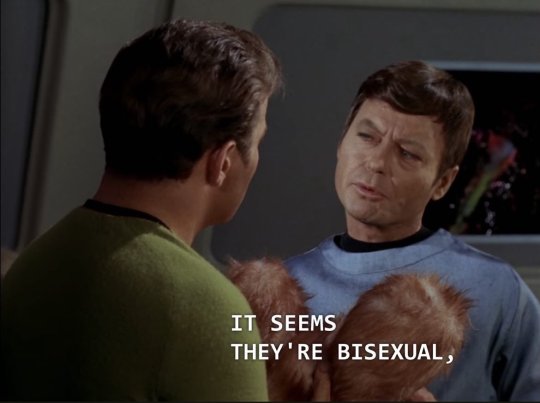
Happy Pride Month
#star trek tos#star trek the original series#star trek#leonard mccoy#jim kirk#leonard bones mccoy#james kirk#deforest kelley#william shatner#bisexual#bisexual pride#pride month
9K notes
·
View notes
Text

Excuse me!?
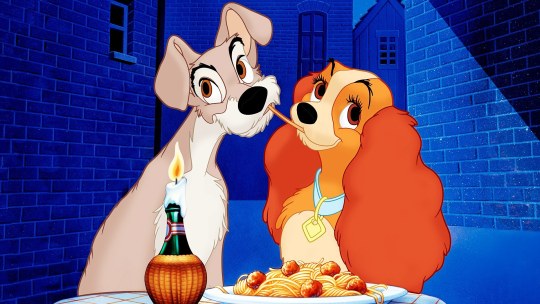
*From TOS season 3 bloopers.
4K notes
·
View notes
Text


Star Trek V: The Final Frontier (1989)
#trekedit#startrekedit#star trek#treksource#startrekgifs#star trek v: the final frontier#tos#leonard nimoy#william shatner#deforest kelley#spock#jim kirk#bones#leonard mccoy#chewieblog#userbbelcher#useroptional#cinemapix#mine*#sd*#filmedit#filmgifs#moviegifs
2K notes
·
View notes
Text




Leonard Nimoy, DeForest Kelley and William Shatner in a recording studio for Star Trek: The Animated Series (1973)
#leonard nimoy#deforest kelley#william shatner#star trek: the animated series#star trek tas#voice acting#mr. spock#dr. mccoy#captain kirk#animation cels#filmation#70s sci-fi#70s tv series#seventies#1973
681 notes
·
View notes
Text

On the set of Star Trek: The Motion Picture.
742 notes
·
View notes
Text




#star trek#star trek tos#the wrath of khan#mckirk#filmedit#tosedit#trekedit#leonard mccoy#james t. kirk#deforest kelley#william shatner#gif#mine#tosfilm#anyway. When can i start screaming
696 notes
·
View notes
Text

what is star trek even about
#star trek#star trek tos#spock#mr spock#bones mccoy#james t kirk#leonard nimoy#deforest kelley#leonard mccoy#william shatner#jim kirk#james kirk#doctor mccoy#leonard bones mccoy#puppyfail
575 notes
·
View notes
Text

860 notes
·
View notes
Text
HAPPY STAR TREK DAY!!!💥💥💥💥💥










Sharing just some of my favourite TOS BTS photos 😍😍 (also BTS pictures of Chekov/Walter Koeing are just sooo funny, he just looks so uncomfortable and filled with unexplainable melancholy)
ALSO HARLAN ELLISON LOOKS SO TINY OH MY GOD-
I cannot believe Star Trek as a franchise overall, is 58 years old?! LIKE HOW?!?!
#star trek#star trek the original series#star trek tos#s'chn t'gai spock#spock#leonard nimoy#pavel chekov#walter koenig#hikaru sulu#george takei#captain kirk#james kirk#james t kirk#william shatner#leonard bones mccoy#leonard mccoy#bones mccoy#deforest kelley
510 notes
·
View notes
Text
See pinned post for the full bracket!
#upset with my own bracketing for pitting two of my favorites against each other so soon 😠#best best original screenplay tournament#best original screenplay#oscars#academy awards#sunset boulevard#sunset blvd#billy wilder#charles brackett#richard l. breen#walter reisch#witness#william kelley#earl w. wallace#pamela wallace#bracket tournament#poll#polls
0 notes
Text
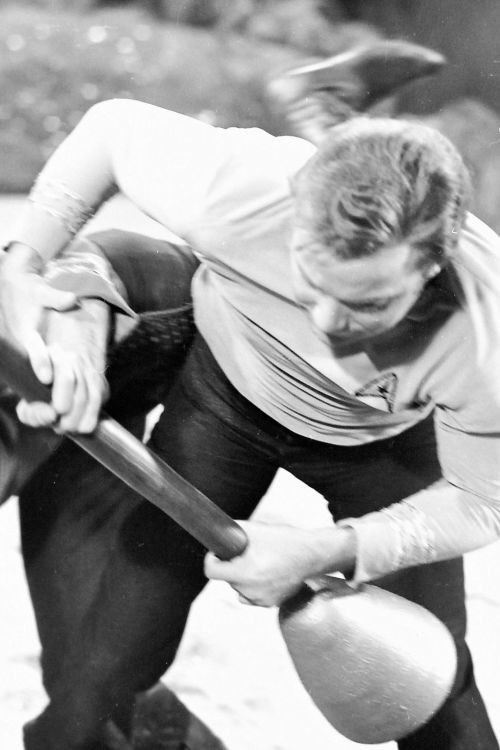
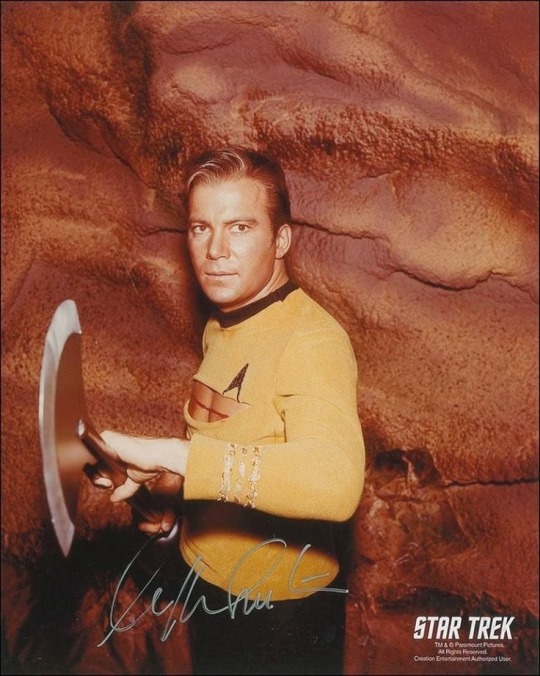
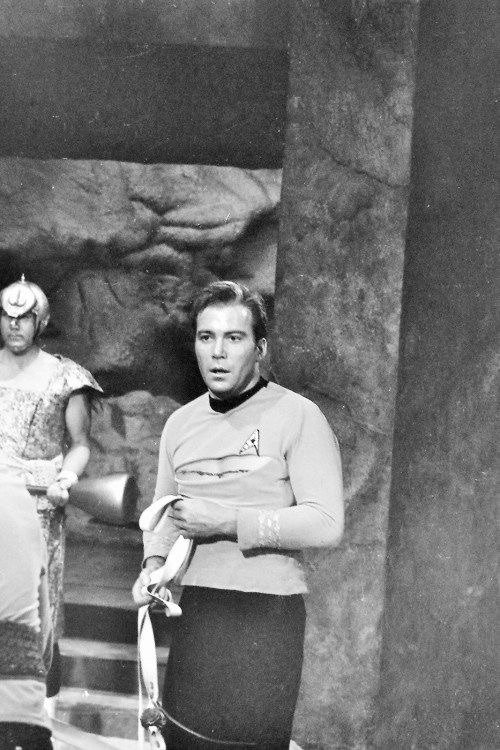

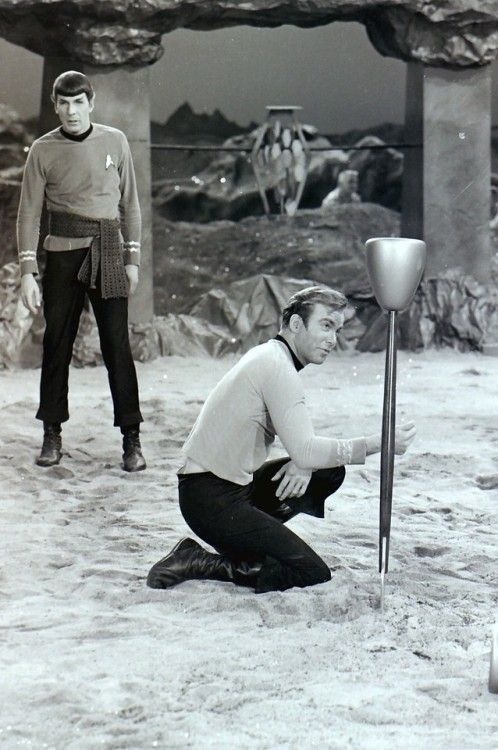
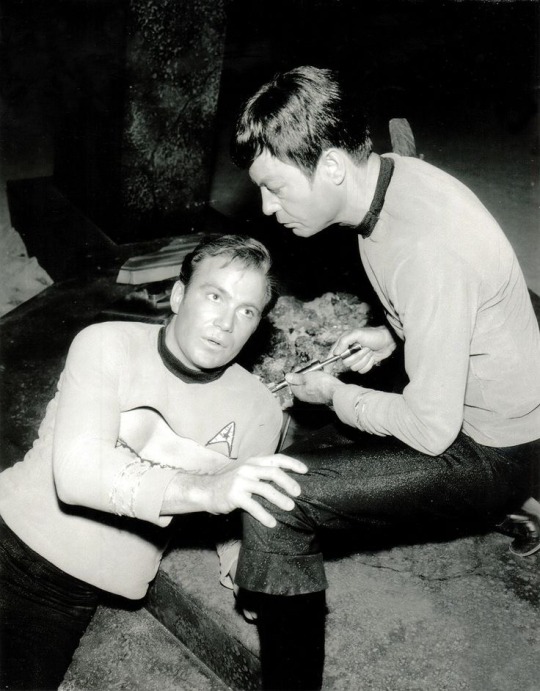
look at these absolute idiots. look at those poses. look at William Shatners tits.
exactly.
#spirk#star trek#star trek tos#tos#jim kirk#spock#bones mccoy#leonard mccoy#amok time#behind the scenes#william shatner#leonard nimoy#deforest kelley
755 notes
·
View notes